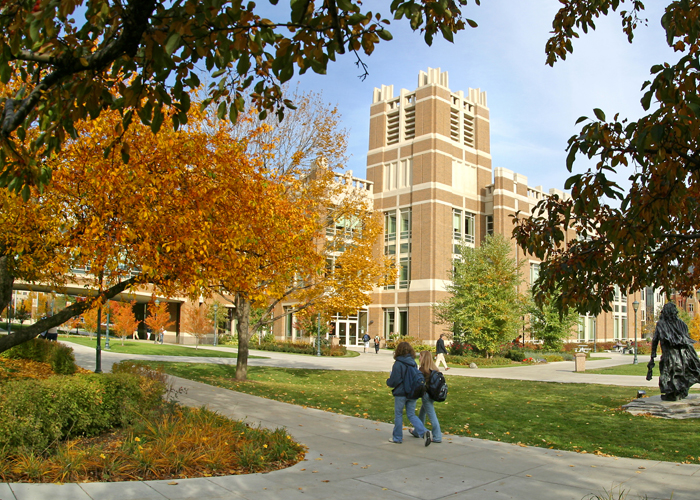Journalism that Matters
The journalism major is designed to provide students with the knowledge and skills needed to become socially responsible multiplatform journalists. We prepare our students to engage in journalism that empowers all members of the public to fully participate in democracy, to dispel biases and disinformation, and to uphold everyone’s right to lead a dignified life. In short, they learn to do Journalism that Matters.
Students who graduate from our program produce in-depth journalism stories based upon authentic, reliable sources and data. Our students are trained to report on transformative stories that illuminate not only the complexity of social issues but the creativity and resilience of communities in Milwaukee and beyond. To do so, students learn to use state-of-the-art technology to tell compelling stories across multiple platforms, including print, electronic, social, and digital media. Our program provides hands-on opportunities to develop strong writing, reporting, and editing skills as well as an understanding of evidence-based data gathering and analysis using appropriate research methodologies. Grounded in the liberal arts, journalism majors also gain familiarity with the law, history, and ethics of the profession.
In Support of Freedom of the Press and the Safety of Journalists
The Journalism and Media Studies Department in the Diederich College of Communication is home to hundreds of journalism students and alumni, and we acknowledge and condemn the violence that journalists, including our own, have faced as they try to do their jobs. We stand in solidarity with journalists and communities as they bear witness to discrimination and violence across the world.
The Journalism and Media Studies Department wants to emphasize our continuing commitment to teaching young journalists the importance of a humane, evidence-based, and safety-conscious brand of journalism. A journalism that considers the impact of reporting on its subjects, that pledges to follow the facts wherever they lead, and is mindful of the need to prepare for potential harm to its practitioners.
Admittedly, journalists and their safety is rarely the primary story, but when their ability to document longstanding institutional injustice is unduly compromised by powerful forces, everyone’s freedom is in jeopardy. In 2022, the Committee to Protect Journalists reported that 67 journalists died in the line of duty – a 50% increase from 2021. While the casualties have been mostly the result of war and armed conflict in countries like Ukraine, we must not become complacent and believe that attacks against press freedom and journalists are a foreign issue. Preparation is key.
In this context, we highlight the importance of the Safety Curriculum developed by our department in partnership with the James W. Foley Legacy Foundation. Fortunately, our Safety Curriculum is being adopted by multiple journalism programs across the United States that realize the importance of these skills in journalism production. The curriculum can be viewed here.
Our department will keep innovating in the field of journalism education to help students and professionals do their jobs better and more safely. Seeking and telling the truth – particularly when truth exposes societal failures and corruption – requires skill, courage, and support. We are committed to teach all our students how to responsibly handle our difficult histories and their connections to our present. We are committed to help them protect themselves and their colleagues as they do so. We are, then, committed to teach “Journalism that Matters”.
 Learn about our Accelerated Bachelor's-Master's program.
Learn about our Accelerated Bachelor's-Master's program.

